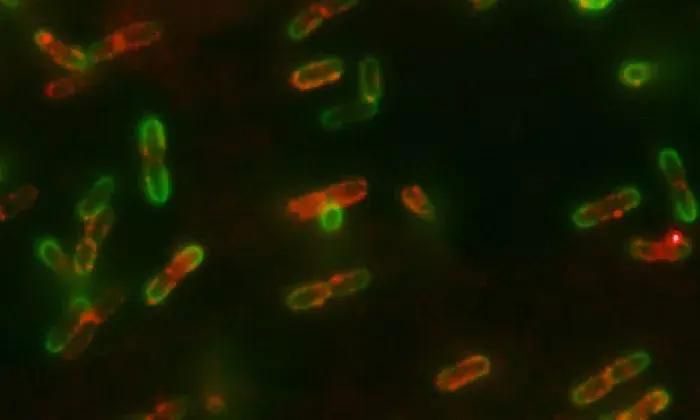According to research by scientists from the University of Texas (USA), before bacterial cells in a cluster or a colony die, they emit an “agonizing death cry“ in a process described as “signaling death“.
These signals function like an early warning system to their neighbors about the presence of a lethal threat. This allows other bacteria enough time to acquire mutations that lead to antibiotic resistance.

Bacteria emit signals before death to warn their peers. (Photo: University of Texas).
More than a decade ago, microbiology professor Rasika Harshey and her team observed that when a colony of bacteria moved into an area treated with antibiotics, only about 25% of them died. They wondered whether these deaths were sacrifices by the bacteria to save the entire community and what factors guided the behavior of the bacteria.
Recent research has confirmed this.
“Dead cells are helping the community survive,” Harshey stated.
The researchers noted that this new discovery is crucial in addressing the issue of treating infections in humans and animals.
By understanding the mechanisms by which bacterial colonies survive antibiotic exposure, scientists can find ways to counteract this with treatment drugs.
“Intervening in this ‘death signaling’ process will enhance the effectiveness of antibiotics and reduce the emergence of drug-resistant strains,” Harshey added.




















































